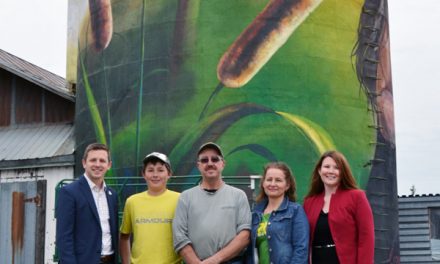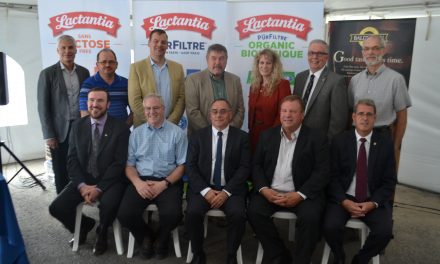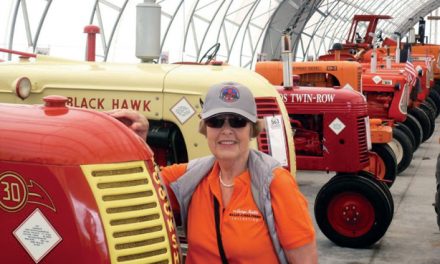ATHENS – Barbara Schaefer and Bernie Barber are retiring at the end of the year, leaving the Farmersville Community Abattoir without a clear future.
Acting as the chair of the Farmersville Community Abattoir’s board of directors for the past four years, Schaefer is ready to hand the reigns to someone else, only problem is, not many people are stepping up to the plate.
“Myself and Bernie Barber, who is our lead butcher, were in it for the long haul but now both of us want to retire,” she said. “Basically what that means is that somebody needs to take over what we’re doing and there is no one to take over what we’re doing.”
The good news is that Ben Wintonic, a young man who has worked with both Lynch’s Slaughterhouse in Mallorytown and the Farmersville Community Abattoir, is very interested in purchasing the abattoir to expand its services to the community. The bad news is that he needs a large deposit on the property, which he doesn’t seem to have or will have by the end of the year.
“[Ben] really wants to take this thing on but he’s required to come up with a $40,000 down payment and so far, he has not been able to find that,” said Schaefer.
A public meeting was held to discuss the future of the abattoir Sat., June 8 in Athens in order to get the public’s thoughts and manpower to help keep the abattoir open. Unfortunately, while one positive idea came from it, the meeting didn’t garner the traction Schaefer and Barber were hoping for.
“Somebody proposed that we do something like a community share, where farmers come forward with a sum of money, like $1,000 for example, and they get it back over time in services,” said Schaefer. “Unfortunately, the long and the short of it is that somebody needs to organize that, somebody has to administer it and there’s no one to do it. We were kind of hoping, at this point, other people in the community who find this to be a valuable asset would have come forward but no one has.”
In the event of Wintonic not being able to come up with the $40,000 and no one else stepping to the plate, Schaefer will have no choice but to look at other venues for sale or simply put a closed sign on the front door.
“If Ben can’t come up with the $40,000 and if no one else steps up, then I’m going to have no choice but advertise it elsewhere and see what we can come up with,” said Schaefer. “Worst comes to worst, we end up having to close the doors at the end of the year because Bernie and I committed, come hell or high water, to stick with this thing until the end of the year. So, that’s kind of the deadline.”
For years, abattoirs have been facing struggles due to on-going labour shortages. Several factors can be attributed for this including the lack of workers in the area. Abattoirs are normally located in rural areas, where the livestock are produced but more available workers are located in urban centres.
There has also been a noticeable decline of young Canadians working as butchers and/or meat cutters over the years, which is in direct conflict of seasoned workers retiring and creating more vacant positions.
Abattoirs are a necessary service to meat producers in the area, if you would like to extend a helping hand to Schaefer, you can contact her at heritagemeat@gmail.com.












